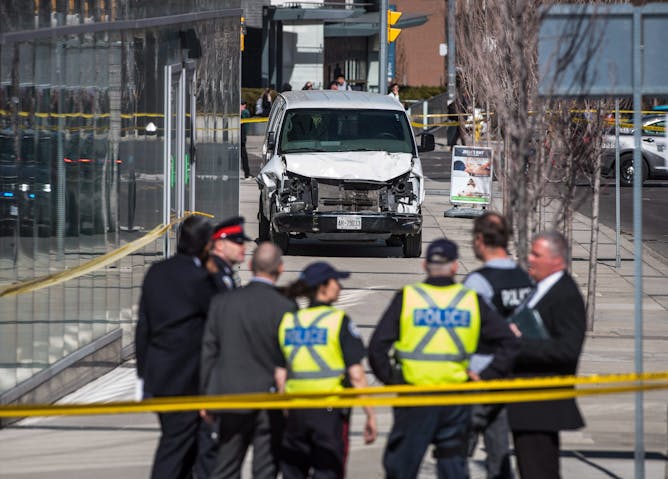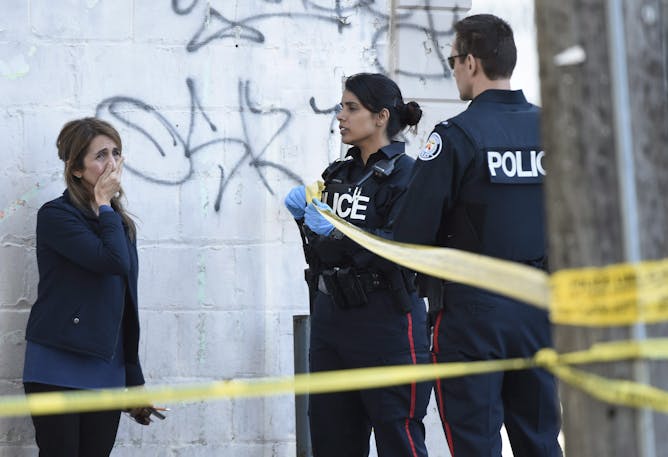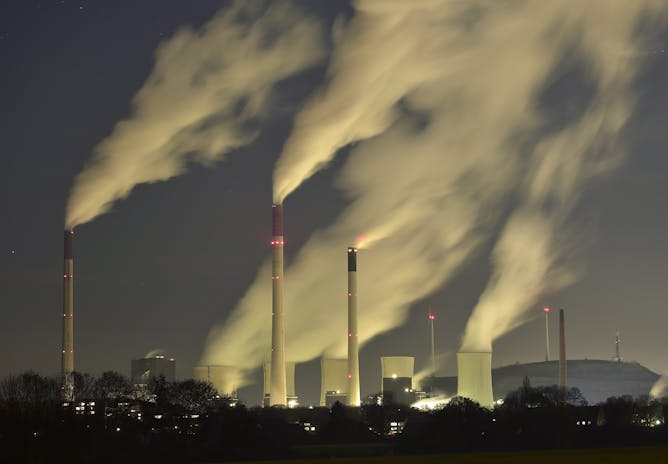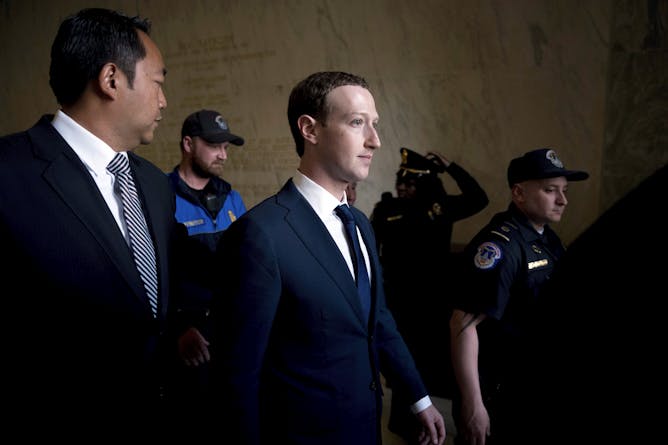|
Toronto is still reeling from the terrible attack that left 10 people dead and many more injured. Today in The Conversation Canada, we take a deeper look at the incident that has attracted worldwide attention.
Glenn Hanna, a former RCMP officer who is now with the Justice Studies program at the University of Guelph-Humber, gives us a complete breakdown on why the Toronto policeman who arrested the driver of the van is being praised for ending the standoff without firing a shot. And Margaret McKinnon of McMaster University looks at the likely impact of post traumatic stress disorder on the witnesses of the event.
Conventional wisdom says globalization has been bad for the environment, but Sylvanus Kwaku Afesorgbor of the University of Guelph and Binyam Afewerk Demena of the International Institute of Social Studies take a deeper look at the issue and conclude there is an argument to made that moving toward “deglobalization” could cause other kinds of environmental damage.
And finally, Isaac Nahon-Serfaty of the University of Ottawa looks at the Cambridge Analytica scandal, compares it to historic propaganda efforts and concludes it’s the “return of what’s known as the hypodermic effect in which the audience falls 'victim' to powerful media that have the ability to manipulate our emotions and shape our understanding of the world.“
Regards,
|

A Toronto policeman is being praised for the way he apprehended a suspect who was accused of killing 10 people by driving a van onto a busy sidewalk.
Glenn Hanna, University of Guelph-Humber
The Toronto cop who apprehended the van attack suspect is being lauded internationally for refraining from using deadly force as he apprehended him. Here's how everything went right for the constable.
|

Toronto police talk to a woman after a van mounted a sidewalk crashing into a number of pedestrians in Toronto, killing 10 people.
THE CANADIAN PRESS/Nathan Denette
Margaret McKinnon, McMaster University
The Toronto van attack that killed 10 people will have an impact on witnesses, care givers and even those who watch news reports. An expert on post traumatic stress explains.
|

While some argue globalization has been bad for the environment, the move towards deglobalization could spell serious trouble for climate. This photo from 2014 shows smoke streams from the chimneys of a coal-fired power station in Germany.
(AP Photo/Martin Meissner, File)
Sylvanus Kwaku Afesorgbor, University of Guelph; Binyam Afewerk Demena, International Institute of Social Studies
Some experts argue globalization has been bad for the environment. But moving away from globalization could have other consequences that could be even more devastating for the environment.
|

Facebook CEO Mark Zuckerberg departs after testifying on Capitol Hill in Washington, D.C., in April 2018 about the use of Facebook data to target American voters in the 2016 presidential election and data privacy.
(AP Photo/Andrew Harnik)
Isaac Nahon-Serfaty, University of Ottawa
Knowledge of our selves, quantified in big data and transformed into affective algorithms, is exploited by corporations and political parties to give us our 15 minutes of fame.
|
Business + Economy
|
-
Victor Sojo, University of Melbourne; Melissa A. Wheeler, University of Melbourne
That Starbucks will close all US stores for 'unconscious bias training' may seem progressive, but one afternoon training session for staff will not overcome racism in the longer term.
|
|
Arts
|
-
Lakeyta Bonnette-Bailey, Georgia State University
Hip-hop heads around the world are rejoicing over Kendrick Lamar's win. But it's been a tumultuous ride for a genre once derided as 'pornographic filth.'
|
|
Health + Medicine
|
-
Walter Focke, University of Pretoria; Mthokozisi Sibanda, University of Pretoria; Taneshka Kruger, University of Pretoria
A novel mosquito repellent has been found to have a longer lifespan than those commercially available.
|
|